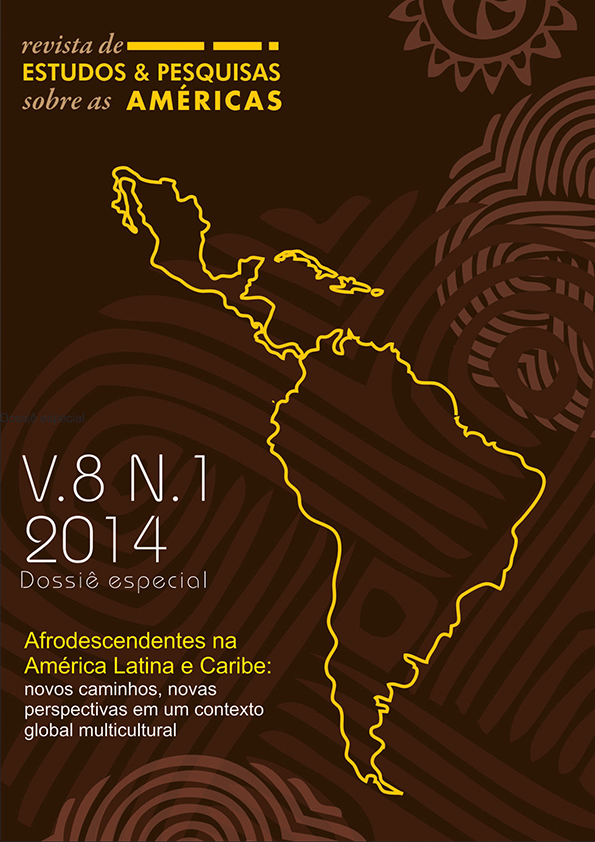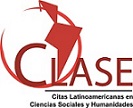Negociando “Negritude” em um Estado Multicultural: Política Creole e Identidade na Nicarágua
Resumen
Esse artigo examina como os Creoles afrodescendentes estão atualmente reconfigurando suas identidades coletivas no âmbito do multiculturalismo nicaraguense. São examinadas questões como: o que significa ser atualmente Creole, negro ou afrodescendente na Nicarágua, um Estado que se proclama Multicultural? Como a negritude é negociada e vivenciada em um Estado onde o multiculturalismo se tornou uma política oficial, mas onde, historicamente, hierarquia racial e racismo não foram reconhecidos? Como essas identidades são negociadas e reconfiguradas em um contexto de lutas por justiça e igualdade? Hoje na Nicarágua, nação historicamente retratada como sendo majoritariamente mestiça ou indo-hispânica, muitos creoles anglófonos estão afirmando uma forte identidade negra racial, imaginada em termos de conexões transnacionais com a diáspora africana, incluindo com o passado africano e a ancestralidade afro-caribenha. Eu argumento no artigo que a atual ênfase na negritude, enquanto identidade creole, está conectada à s mudanças do modelo de multiculturalismo nicaraguense, sobretudo a implementação de políticas específicas de combate ao racismo e a discriminação racial, uma dinâmica que ilustra a relação dialética entre direitos e identidades.
---
Negotiating "Blackness" on a Multicultural State: Politics and Creole Identity in Nicaragua
This article examines how Afro-descendant Creoles are currently reimagining their collective identities in Nicaragua in the context of multiculturalism. It examines questions such as: what does it means to be Creole, and/or black or Afro-descendant in Nicaragua today in the context of a self-proclaimed multicultural state? How is blackness negotiated and lived in a state where multiculturalism has become official state policy, but where, historically, racial hierarchy and racism have not been recognized? How are these identities negotiated and remade in the context of struggles for justice and equality? In the context a Nicaraguan nation that has historically been portrayed as overwhelmingly mestizo or Indo- Hispanic, many English-speaking Creoles today are asserting a strong black racial group identity imagined in terms of transnational connections to the African diaspora, including to an African past and Afro-Caribbean ancestry. I argue that the current emphasis on blackness in conceptions of Creole identity are connected to changes to Nicaragua’s model of multiculturalism, specifically the implementation of specific policies to combat racism and racial discrimination, a dynamic that illustrates the dialectical relationship between rights and identities.
keywords: blackness, nicaragua, creole communities.
Descargas
Descargas
Publicado
Cómo citar
Número
Sección
Licencia
La materia publicada es propiedad de la Revista, pudiendo ser reproducida total o parcialmente con indicación de la fuente.
Copyright: Los autores serán responsables de obtener el copyright del material utilizado.
Los autores que publican en esta revista concuerdan con los siguientes términos:
a. Los autores mantienen los derechos de autor y conceden a la revista el derecho de primera publicación, con el trabajo simultáneamente licenciado bajo la Licencia Creative Commons Attribution que permite el compartir el trabajo con reconocimiento de la autoría y publicación inicial en esta revista.
b. Los autores tienen autorización para asumir contratos adicionales por separado, para distribución no exclusiva de la versión del trabajo publicada en esta revista (por ejemplo, publicar en repositorio institucional o como capítulo de libro), con reconocimiento de autoría y publicación inicial en esta revista.
c. Los autores tienen permiso y son estimulados a publicar y distribuir su trabajo en línea (por ejemplo, en repositorios institucionales o en su página personal) a cualquier punto antes o durante el proceso editorial, ya que esto puede generar cambios productivos, así como aumentar el impacto y la cita del trabajo publicado (Vea el efecto del aceso libre)

















